The ‘Magnificent Seven’ support teens through some of their most formative years—one student at a time
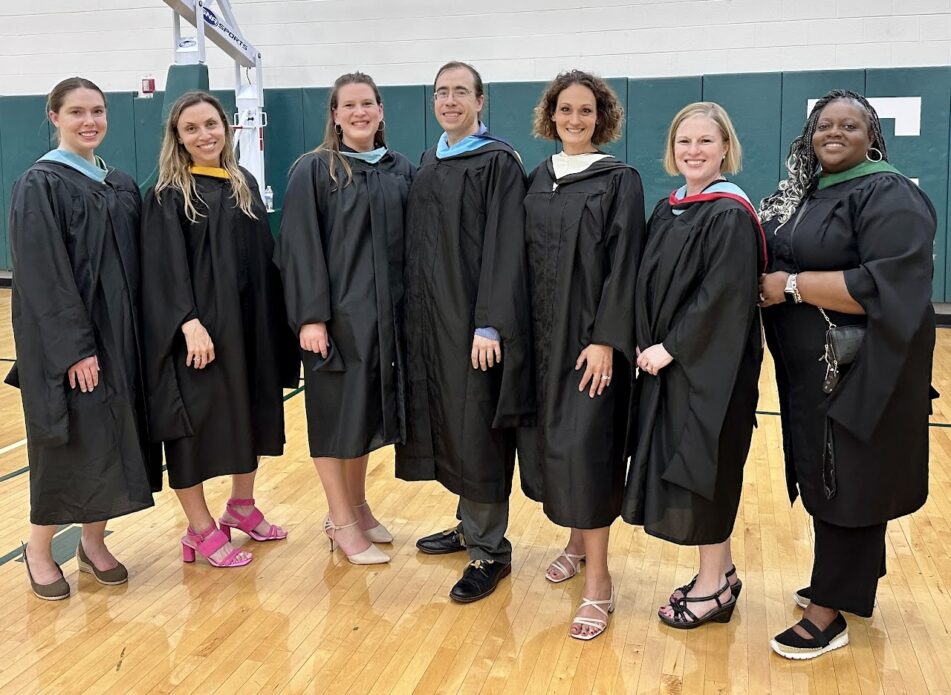
When asked to recommend a Huron High School staff member for an upcoming Exceptional Staff profile—a weekly feature in the AAPS District News—Principal Ché Carter had an unusual request: Could the entire counseling department be featured instead?
“They do so much and are absolutely critical to school opening,” Carter said, speaking with pride of his counseling staff. “I consider my counselor team the Magnificent Seven. Each counselor brings a unique set of skills and expertise to our team, and together they create a collective that enhances the support we provide to our students.”
The counselors represent the school’s broader mission, Carter says. “The Magnificent Seven exemplify what it means to ‘Understand our shared humanity’—to be not just counselors, but also advocates and mentors for our students. People need people, and I am proud to work alongside them daily.”
The entire department keeps students on track from registration to graduation. Since August 5, they’ve been back at work overseeing registration week. During this critical period, the counseling team juggled schedule changes, course conflicts, and numerous calls about issues ranging from academic planning to personal crises.
At Huron High School, the counseling team serves as both academic guides and emotional anchors for students navigating one of life’s most challenging transitions. With caseloads ranging from 250 to 275 students each, these professionals juggle an extraordinary variety of responsibilities that extend far beyond what most people understand about their profession.
Come Monday morning, they were ready for whatever it takes to keep Huron’s 1,750 students on track for success.
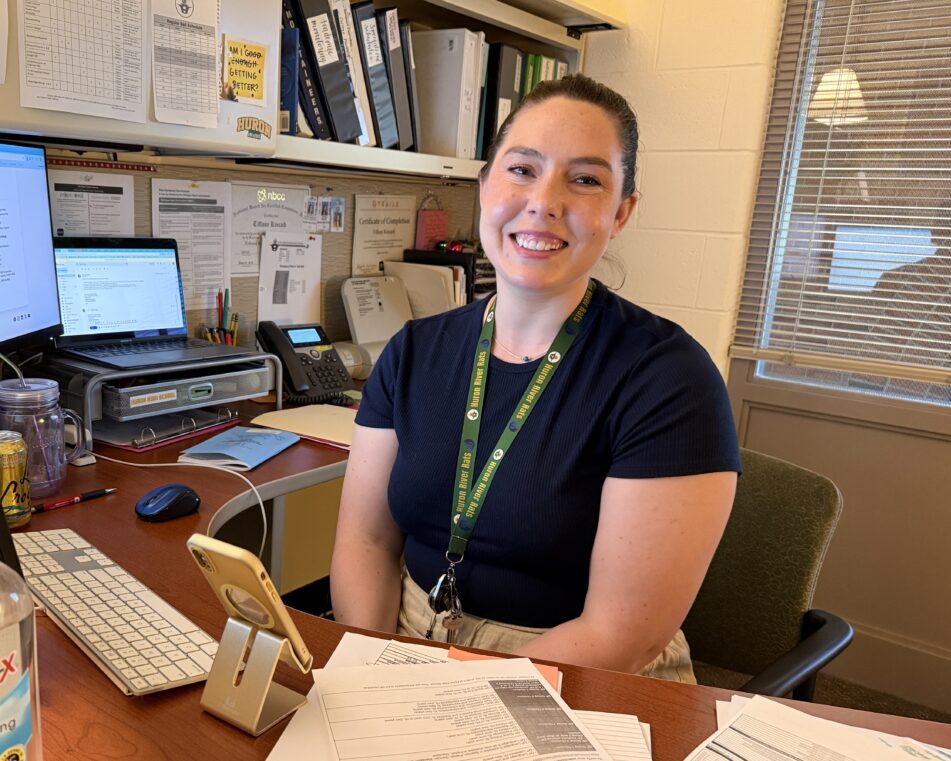
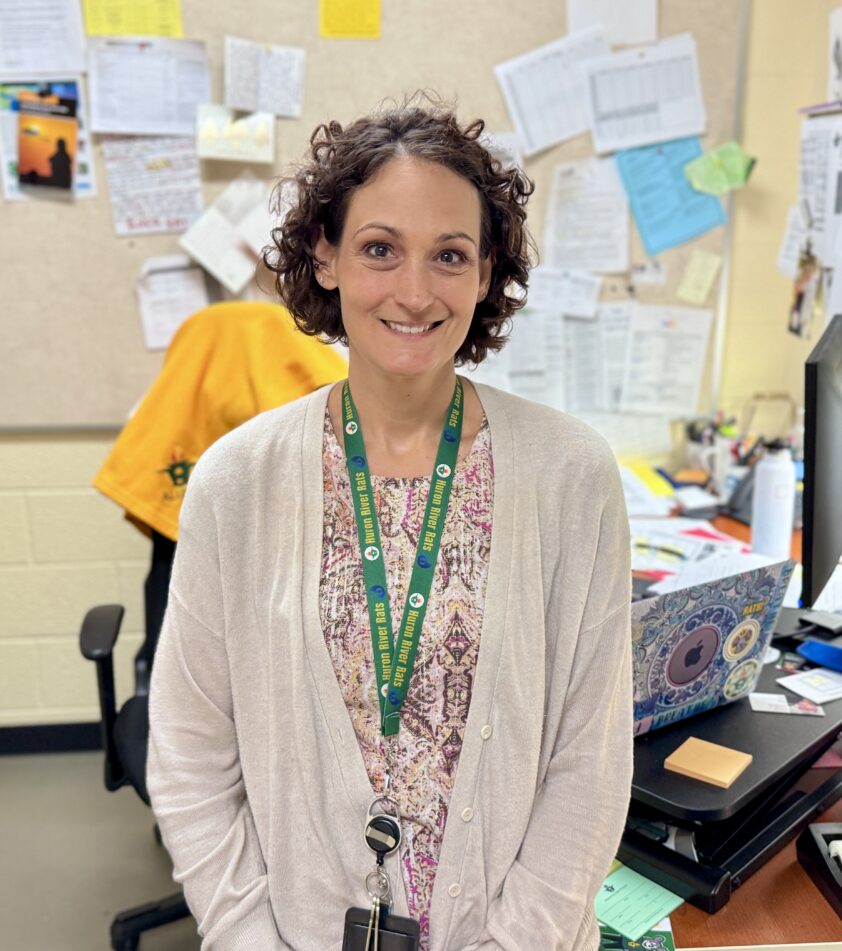
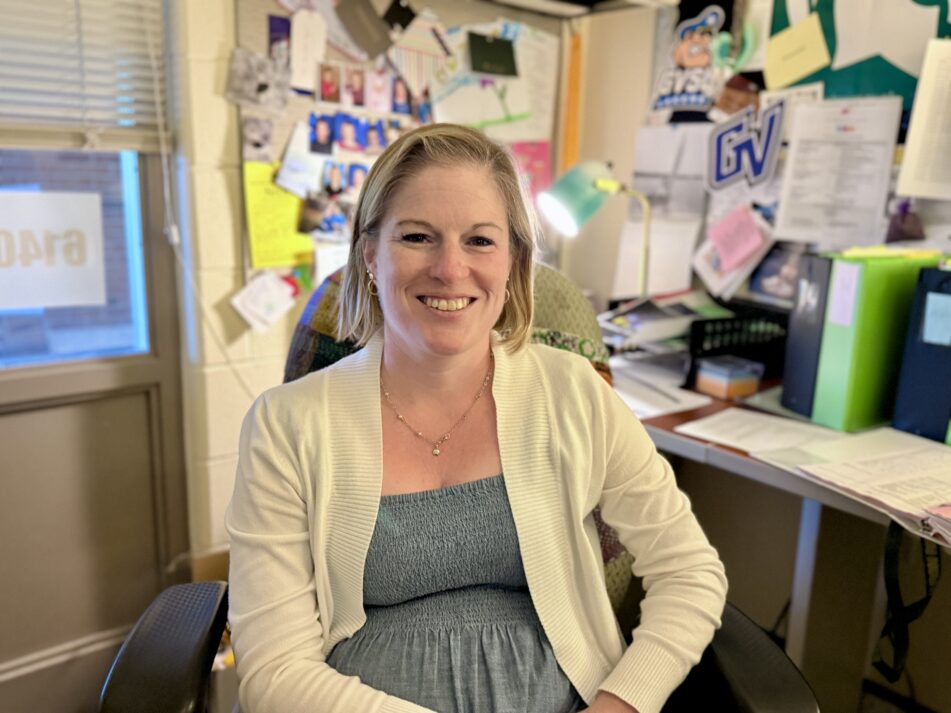
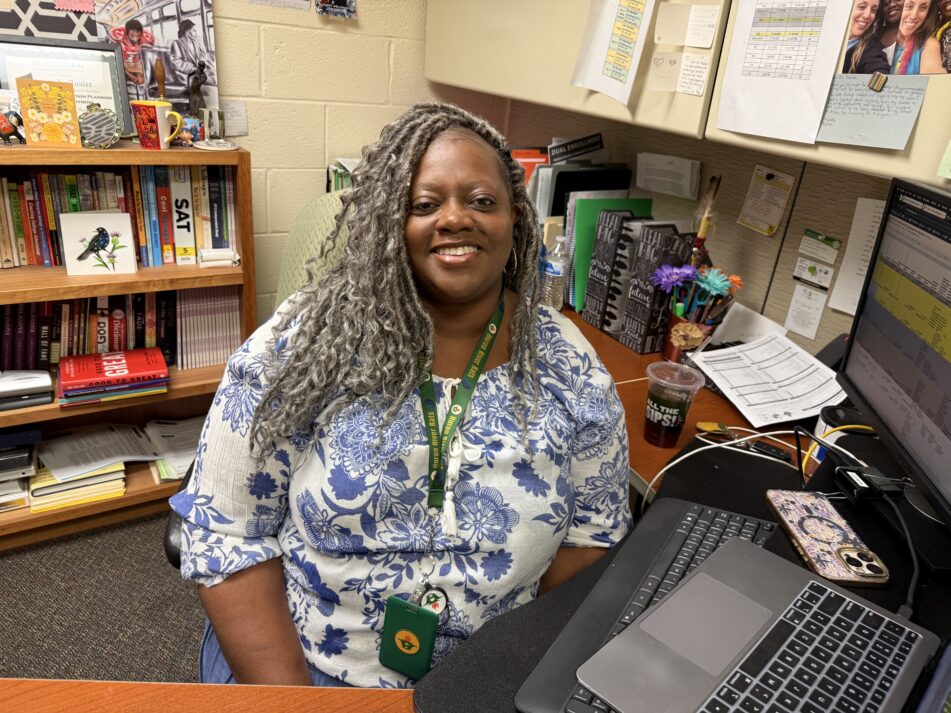
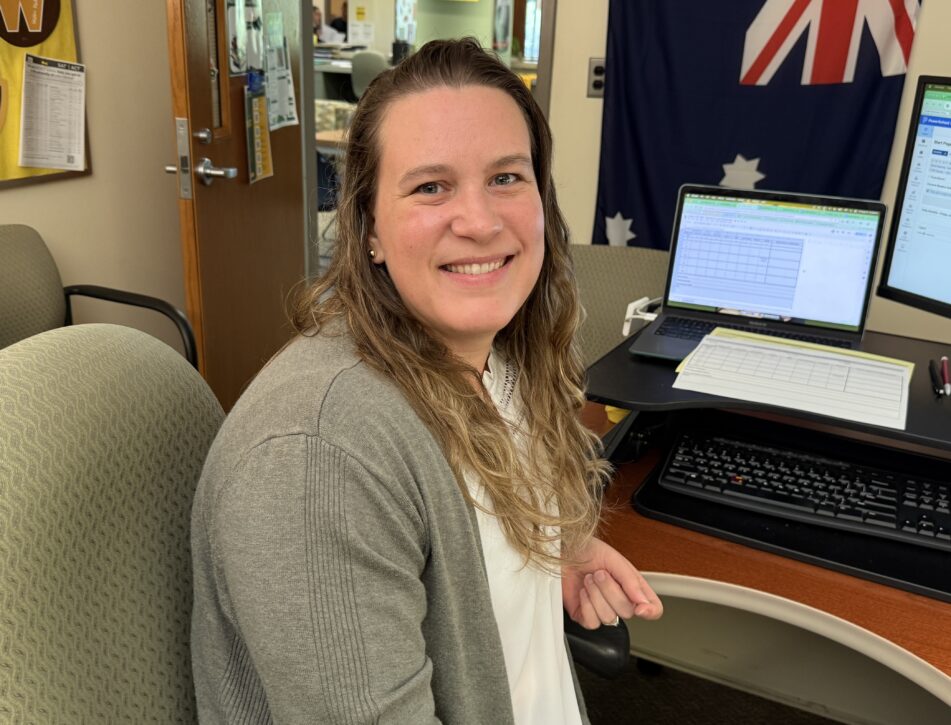
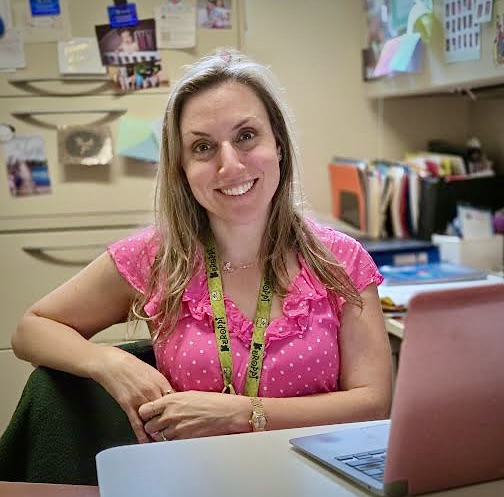
The reality of the role
“It’s a lot of juggling different things, and we’re all very caring about doing the best things for our students,” explains counselor Tiffany Kincaid, describing the constant shift between academic planning, college applications, 504 meetings, and crisis intervention.
Each counselor works with students across all four grade levels, dividing their caseloads alphabetically to ensure continuity throughout a student’s high school journey. No two days look the same, they say.
Students arrive needing everything from Band-Aids to housing assistance, from schedule changes to help finding someone to sit with at lunch. Office Professional Kristen Fraser observes that counselors “take the time to meet with every single student for every single problem—to problem-solve with them, not to solve their problem, but to help the students figure out what they need.”
The challenge of describing their work extends beyond the office. When Caitlin Van Cleve’s family asks about her workday, she often finds herself saying she doesn’t know how to describe it—some parts were great, others challenging. This complexity reflects the deeply individualized nature of their work, where “you just have to get to know the kid,” Van Cleve says.
She says her favorite part is watching them flourish through their journey of high school, figuring out what to do after graduation, and “working with me and grappling with things in the middle.”
The hardest part, Van Cleve says, is when she doesn’t have the answer for students or their families who are in particularly tough situations.
“I like figuring things out and making people feel better and coming out of a meeting with a plan,” she says. “And sometimes in some situations, I can’t provide that or there isn’t really just an answer.”
Counselor Tiffany Kincaid believes many people don’t fully understand the scope of her profession because much of the work is private, “and the constant juggling required makes each day unpredictable.”
The emotional weight
The work takes a significant emotional toll that counselors acknowledge openly.
“There have been times that I’ve gone home and just been overwhelmed by the amount of stories and the emotional weight that we carry for our students,” explains Heather Potocki. To cope, she hugs her own children tight at night, works out regularly, and connects with colleagues who understand the unique challenges of their role.
Managing the demands of counseling requires both professional support and personal resilience, says Nunlee, acknowledging that the job involves juggling multiple responsibilities. However, she noted that there are ebbs and flows throughout the year, which helps. As does the strength of her workplace relationships.
“We have a great team here, and overall with our staff and with our administration, so we support one another,” she says. “And then you just have to practice good self-care.”
Kincaid feels overwhelmed much of the time and finds it inevitable that students’ struggles affect her personally. “It’s very upsetting when someone you care about—your students, your families—is going through things that are difficult,” she admits, though she remains committed to helping them through challenging times.
Yet this emotional connection is precisely what makes their work meaningful.
“I feel very honored that we get to say our students’ names at graduation because we know all the stories that went into that kid being able to walk across the stage,” Potocki says, highlighting the deep investment counselors make in each student’s journey from freshman year through graduation.
Growing challenges
The counselors have observed troubling trends in recent years that make their work increasingly complex. Student anxiety and stress levels have risen sharply, particularly after COVID-19.
Nunlee, with more than 20 years at Huron, has witnessed these changes firsthand, noticing rising academic pressures, greater expectations for students to specialize early, and increased anxiety and stress—trends that worsened significantly after the pandemic.
She’s observed that students who step away from social media often seem less stressed, noting that “social media itself breeds anxiety, and we need to figure out a way for students to use it more positively.”
Technology and social media present ongoing challenges for Nina Perko as well. “I really wish students weren’t on their phones all the time,” she says. While acknowledging that “school is easier for students, in essence, because of technology,” she worries about unintended consequences: “Because it’s easier, they don’t necessarily put the time and effort into it, and kids don’t know how to study.”
The decline in study habits particularly concerns Perko. When working with struggling students, she finds them increasingly unprepared for self-directed learning. She may ask: “What do you do to study? How do you learn the material?” Sometimes they return with a look that seems to ask: “I’m supposed to study outside of school?”
The individualized approach
What sets effective counseling apart is the deeply personalized attention each student receives. “I think what people don’t realize is that it is very individualized,” says Perko. “We really do try to connect with the students and meet them where they’re at.” This philosophy forms the foundation of the team’s approach.
Emily Mashal echoes this sentiment: “Each of my 255 students has unique dreams, needs, and aspirations, and I see it as my responsibility to champion them in the ways they need most.” For her, success looks different for every student: “I feel the same level of excitement for a student heading to the Ivy League as I do for a student pursuing a trade program—every path matters, and each student contributes something valuable to our community.”
This individualized approach means counselors cannot make broad generalizations about solutions. As Van Cleve puts it: “You just have to get to know the kid.”
The reward comes in witnessing transformation over time. Perko finds her greatest satisfaction in “the light bulb that goes on sometimes for students and seeing them from freshman year to senior year—how they change and grow and mature.”
Beyond academics
The scope of support extends well beyond academic guidance, as counselors often become the bridge between school and community resources. Mashal launched a food pantry in partnership with Food Gatherers and helped establish an equity fund to address urgent financial needs. “Unfortunately, the needs always outweigh the resources,” she acknowledges, but these initiatives demonstrate how counselors work to remove barriers that prevent students from succeeding.
Fraser, observing from the front office, describes the comprehensive range of issues: “Everything from needing a Band-Aid to needing housing, needing help with schedules to having struggles with a peer or finding a friend to sit with at lunch… It’s really anything that might concern a student.”
The counselors understand that academic success cannot be separated from students’ broader life circumstances. As Perko says: “There’s just so much more that our students deal with, and I wish they didn’t have to. That’s not necessarily related directly to the job, but there’s just so much more going on for students, and school is just a minor piece of it.”
Principal Carter’s perspective
Carter particularly values the counselors’ approach to their work with the school community. “They approach situations with patience and genuine care for our students, staff, and their families,” he observes. This creates a dynamic where staff members naturally seek out the counselors for support. “Staff will always seek them out before they come to principals, and that is alright with me,” Carter notes. “It matters not who does it but rather that it gets done with care.”
He also praises the team’s collaborative skills during challenging situations. “I have witnessed them navigate complex decisions with grace, demonstrating an ability to disagree respectfully while remaining focused on what is best for our students,” he says.
Carter describes his counselors as having both commitment and perspective. “Their commitment is authentic, and they do not sweat the small stuff. They are open to exploring innovative ways to improve practices as a school community,” he says. “A recent example is a team decision to consider changing our counselor configuration. They decided to keep the current configuration in the best interest of students’ needs.”
This flexibility particularly impresses Carter. “This level of flexibility and willingness to adapt are qualities that truly set them apart, and it’s why I will never hesitate to support them.”
“Every interaction I have with them is a learning opportunity. Their wealth of knowledge and expertise not only enriches our school community but also inspires me to grow as an educator and leader to best support them.”
Critical support at the school’s start
The beginning of each school year represents one of the most intense periods for the counseling team. They must finalize schedules for Huron’s 1,750 students, ensure every student has appropriate classes for their goals, and help families navigate the transition back to school routines. This work begins in early August and continues through the crucial college application season in the fall.
Kincaid explains that scheduling goes far beyond simply assigning classes—”it’s about helping students be the most successful for the school year” based on their individual needs. The complexity of this work requires exceptional organization. As Kincaid notes, she thrives on “having good systems” with spreadsheets and calendars, though she admits the current period can be “a bit overwhelming.”
While many schedule change requests are legitimate and based on academic needs, counselors also field requests that can add to their workload. Students often have valid concerns about setting themselves up for post-graduation plans, but counselors also receive less academically focused requests like wanting “this period with my friend or this lunch,” as Kincaid explains. She handles each situation individually, “taking every request on a case-by-case basis.”
Nunlee advocates for patience and comprehensive support. She recommends normalizing it and telling students, “You’ve been off, and it’s time to get back in the swing of things, and that’s going to take some time.”
She emphasizes the importance of “reminding them who their supports are in the building.”

The rewards
Despite the challenges, the counselors remain deeply committed to their work, finding profound meaning in their daily interactions with students. Their greatest satisfaction comes from witnessing student growth over four years and celebrating achievements at graduation.
For Mashal, the biggest rewards come from watching her students grow over four years and celebrating their accomplishments.
“My greatest joy is helping them grow so that when they walk across the stage at graduation, they’re ready to enter the community as their best selves,” she says. “I feel the same level of excitement for a student heading to the Ivy League as I do for a student pursuing a trade program—every path matters, and each student contributes something valuable to our community.”
Nunlee expresses the deep emotional connection that sustains her: “It’s just been an honor to do this for so long and to still love it—to be part of a community that feels more like family. When I get a new student, they are an extension of my own family. So I’m here to support their dreams. Their dreams are my dreams.”
Van Cleve, despite being a 2000 Pioneer graduate who has now spent nine years at Huron, explains how the school has transformed her professional identity. Having been at Huron twice as long as she attended Pioneer, she says Huron has become “my home as a professional, for sure.”
For Mashal, the work itself is the reward: “I truly love my job,” she says simply, reflecting the sentiment that runs through the entire counseling team.
Reflecting on the current educational landscape, Carter acknowledges the immense value of his team. “In a time when the needs of our students are more diverse than ever, I am grateful to have such a talented and compassionate team by my side.”


Be the first to comment